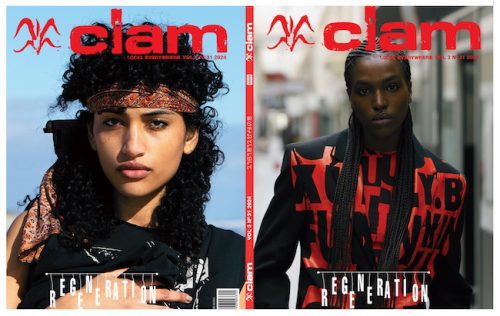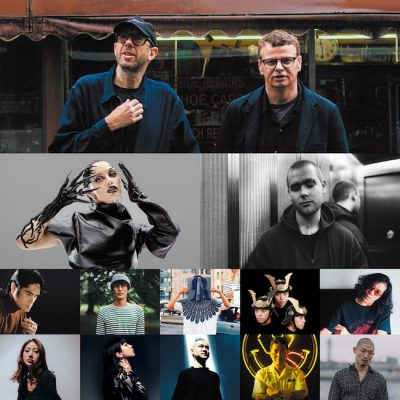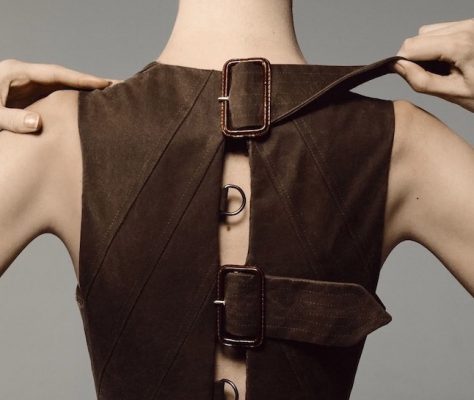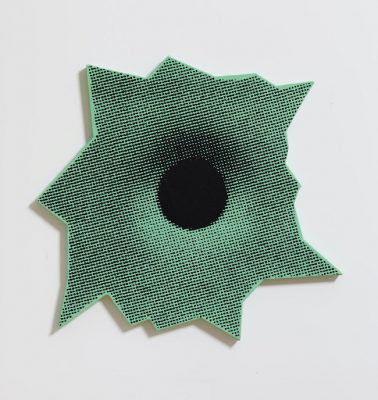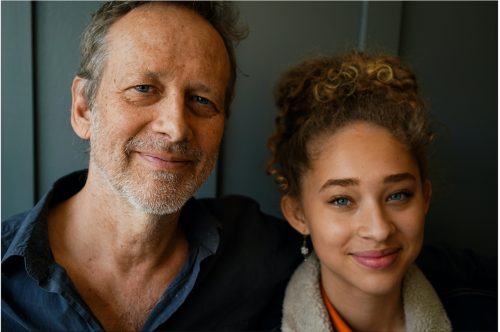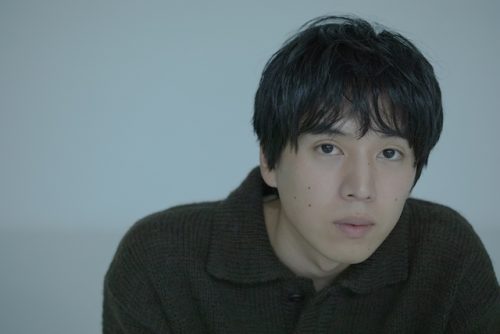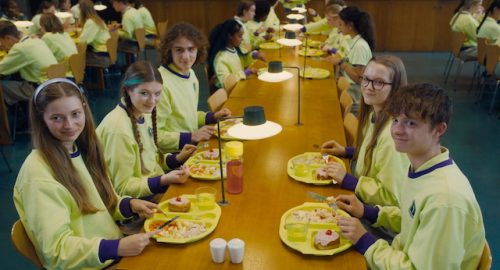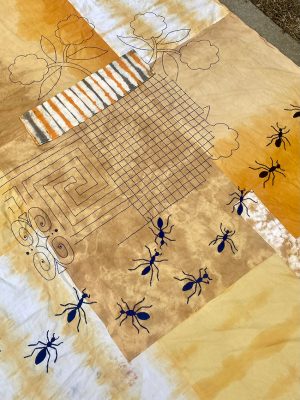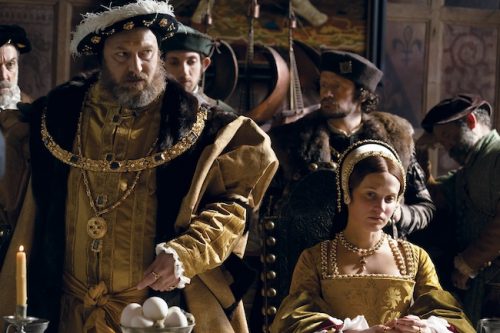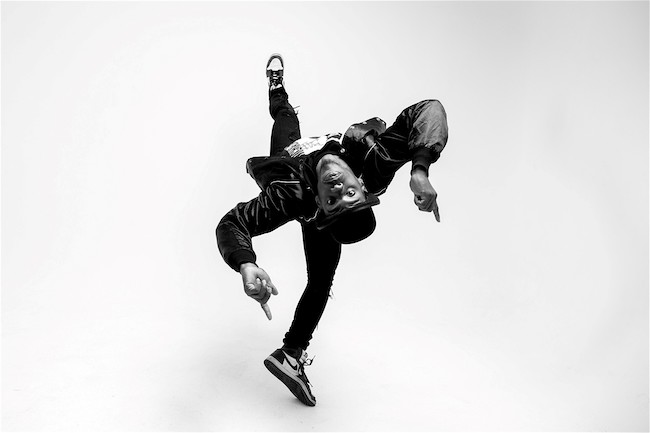
――I saw your dance for the first time when my friend sent me the link to your short film “Nobody Knows.” I was really impressed because I had never seen anyone dance like you. How would you describe Memphis jookin in your own words?
Lil Buck: If I were to describe how it looks visually as far to somebody that’s never seen it before, I’d say like Michael Jackson times ten [laughs.] It consists of a lot of glides and slides and a bounce. So basically, Memphis jookin was born from this bounce that came from how we vibe with the music that we’d hear. Memphis jookin was born from Memphis underground rap music. So it started with the bounce, and then after that came Gangsta Walk, and it evolved from that to people adding different steps to it and then different glides and slides to it, and it evolved to Memphis jookin and the style you see now. But for people that never seen it before, I would just tell them that it’s a dance style that’s native to the city of Memphis that consists of a lot of slides and steps and toe spins and glides and it’s based on musicality. So like just dancing from one rhythm to another to another… And yeah, if that makes any sense to you [laughs.]
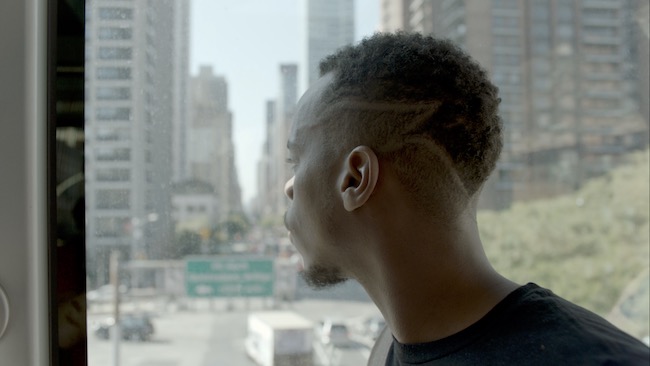
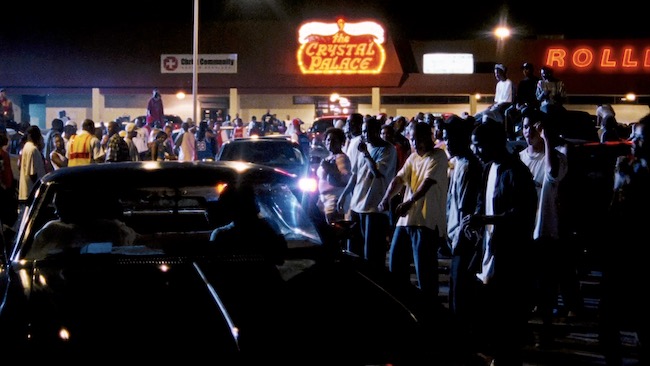
――How did dancing become an important part of your life?
Lil Buck: Dancing was an important part of my life, because for as long as I can remember, I grew up watching my sister dance. She was always into dance. And that’s just been one of those things that has helped keeping me happy in life. I grew up in a lot of poverty and we didn’t have nothing to do as kids growing up, because we didn’t have anything. Dance was something that you didn’t need to buy anything, you can just have fun doing this. I would just see how happy my sister was dancing and that would just make me want to do it, too. And it made me happy to be able to dance with her and have that camaraderie with her growing up. So that’s how my love and my passion for dance started.
――Did you always want to become a dancer?
Lil Buck: Growing up, I actually was into art and I was really into drawing anime [laughs.] I would draw “Dragonball Z,” “Try Gun” and “Cowboy Bebop” and all types of different anime. I wanted to be an artist for a long time, but I wanted to be a dancer more. I learned from my sister just my love and passion for dance, but then when we moved to Memphis and started to see the actual style that they had there and what they were doing, that was close to my ambitions and my goals of dance. I wanted to be able to somehow move like Michael Jackson, and I’d never seen any other street dance style from anywhere else moving it in that similar way. There was popping of course, which is the dance style that Michael learned from and got a lot of his moves from, but we didn’t have any of that in Memphis. All we had was jookin and all these kids gliding around in their sneakers, so that’s how I got into it. I was around 12 or 13 when I first saw it in the streets in Memphis. I just saw a kid dancing outside of a car in the parking lot, and he was gliding like he was on water. That’s when I fell in love with Memphis jookin and that whole dance style, and that’s when I wanted to be a dancer when I saw him.
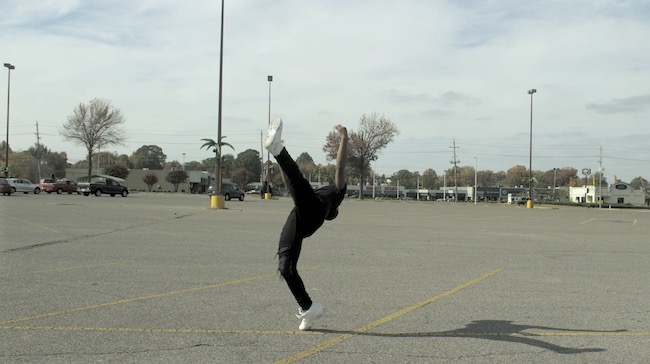
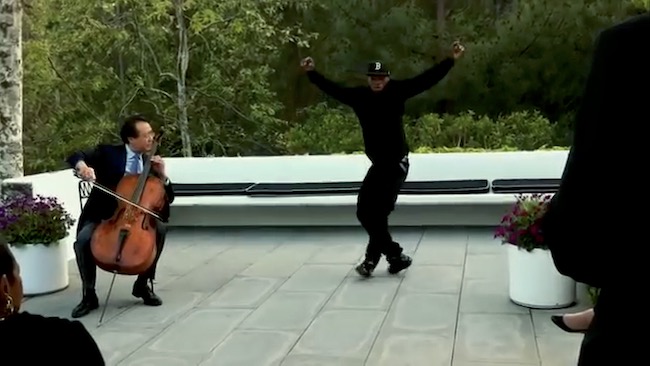
――How did this film come about?
Lil Buck: Almost four years ago, it was around the time when I first moved to LA actually, I met Benjamin Millepied who is a choreographer and the founder of L.A. Dance Project. He’d heard about me, he saw what I’ve done with Yo-Yo Ma and we did a few collaborations together. And Louis Wallecan, the director of “Lil Buck: Real Swan” was actually working with Benjamin Millepied as a videographer on the project that we did together.
――I see.
Lil Buck: That’s when he started to learn about Memphis jookin through doing this film, interviewing me and learning more about my style. So he’d been interested since then, but it wasn’t until Memphis jookin started to slowly gain its popularity in the world. It became a dance style that a lot of people wanted to know about or learn, and it was getting really popular in the mainstream, because of everything I was doing for the culture. And when Louis Wallecan saw that I was behind a lot of this, I think he felt the same way that I felt about it when I first saw it, and he wanted to actually do something about it. I know he was on his journey in becoming a film director, and I think Memphis jookin was one of his big inspirations when it came to capturing movement on film. And I always wanted to tell the story of the Memphis culture and Memphis jookin and have that be shown on a global scale. So we both were like-minded about getting the film about Memphis jookin and about the style in general out there.
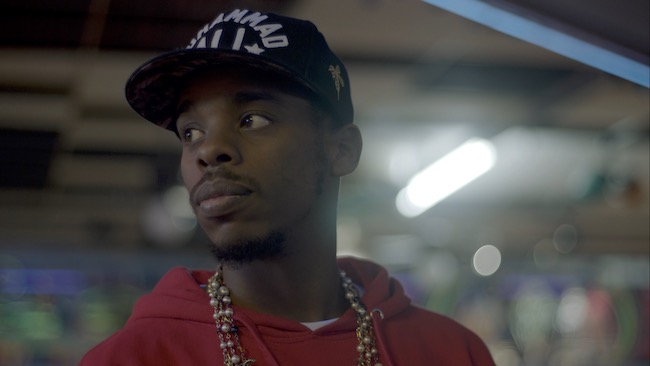
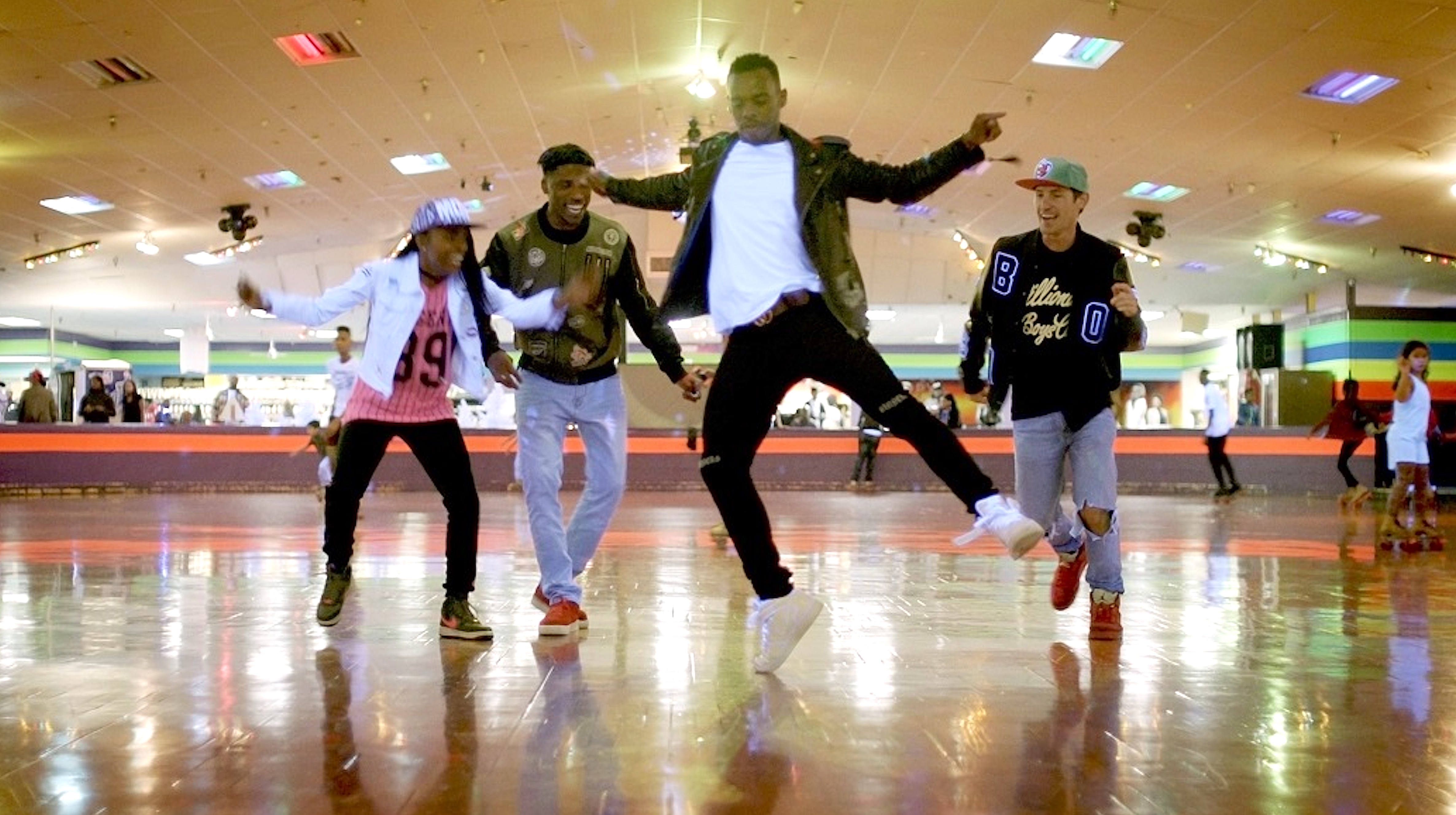
――When approached about this documentary, were there any conditions that you gave to the director?
Lil Buck: I just told the director to listen to us as far as the places that he wanted to shoot. Because I know for coming from outside, you want to get the full authenticity. I wanted him to know that it’s still a street dance. There are still places that you got to be with somebody to be able to go to, to actually not getting robbed or whatever, you know? [laughs] The director came into it having respect for the culture and knowing that this is a culture worth respecting, and we shared that with him. We told him that there’s a lot of people who want to come in and learn about jookin or do something with it, or exploit it in certain ways. And for us to be able to trust this culture in your hands, we just asked him if he could just trust us with whatever he needed, and to have us be in that whole creation process with him as far as how it’s being edited.
――To make sure that it’s real.
Lil Buck: Yeah, we made sure that the authenticity really comes out, from how people speak in Memphis to the questions he’s asking certain people. So we just had that mutual respect and that mutual understanding that’s bigger than myself. And it’s something that’s bigger than him, and bigger than both of our ambitions. It’s a culture, you know, it’s a whole culture. This is one of our few prized possessions that we have as far as Memphis and something positive coming out of the city. We have blues, we have the music scene, we have rock and roll, we have Elvis, we got barbecue [laughs.] When you think of Memphis you only think of these different things. But we have Memphis jookin now, you know? Memphis jookin is one of our most positive things that we get that’s deeply rooted into the fabric of the city of Memphis in general. So we hold that dear to our hearts, and we just asked that he respect it, and that was it.
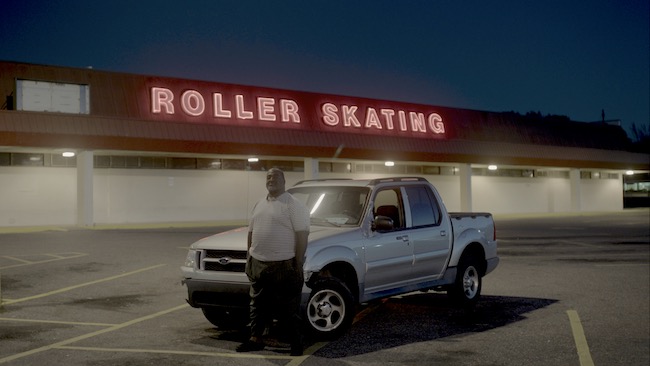
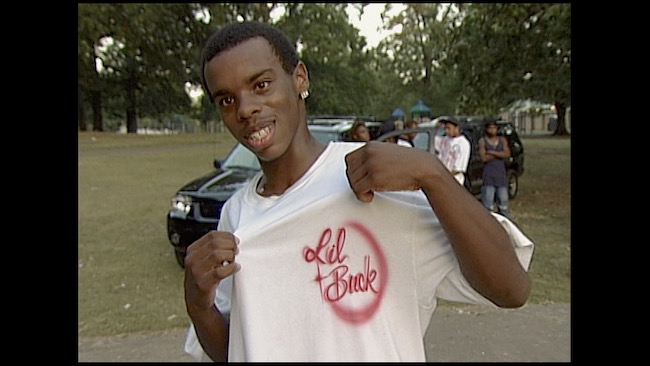
――In the movie, we get introduced to the skating rink called the Crystal Palace where Memphis jookin started. It was a place that helped kids staying out of trouble but now it’s closed down. How is the situation surrounding kids in Memphis now?
Lil Buck: First of all, it makes me feel so good that you know about the Crystal Palace, and that people outside of Memphis know about this magical place! It just fills me up with joy that you can even speak about the Crystal Palace that authentically. I know that the film is doing its job, it’s serving its purpose. Yeah, it was a place where a lot of kids can come in and stay out of trouble and just dance or skate, and unfortunately, it’s closed down now. But now, the dance is ever evolving, I think because of what I’ve done in the industry and because of how I’ve introduced the world to Memphis jookin, and show that there was a path for you to be able to do this dance and actually make a living from it for my peers back in Memphis. And it’s inspired a lot of Memphians to actually take the reins from home and start building opportunities for themselves.
――What are some of the changes?
Lil Buck: So there are dance schools out there now where you can learn and practice Memphis jookin and do all these different things. There is Subculture Royalty which is I’m an alumni member of. There’s also LYE Studios that just opened up. Ladia Yates is a dancer who learned Memphis jookin at a young age like me, and it changed her life, so she opened up a school. And I’m opening up an academy as well, where you can learn how to jook downtown in Memphis. We’re working on it right now.
――That’s exciting.
Lil Buck: Also, this next generation of kids, they’re smarter. And they’re craftier and ambitious for dance in general. The generation after us, they just see the fun and joy that’s attached to this dance style. We keep in that lineage of authenticity alive and making sure they know that it’s a street dance, but they don’t have to go through these different challenges and struggles that we went through. The reason why it was different back in the day was because there was literally zero opportunity for this dance. Now we have YouTube and social media and these different platforms. So you actually get to show your individuality and express yourself to somebody other than your cousin who’s over here watching you dance. And then now, we have this whole next level of influence and sharing your individuality within this dance style. So a lot of kids are keeping themselves out of trouble. To be honest, they are so in love with this dance. They have aspirations of their own. They want to get past me one day.
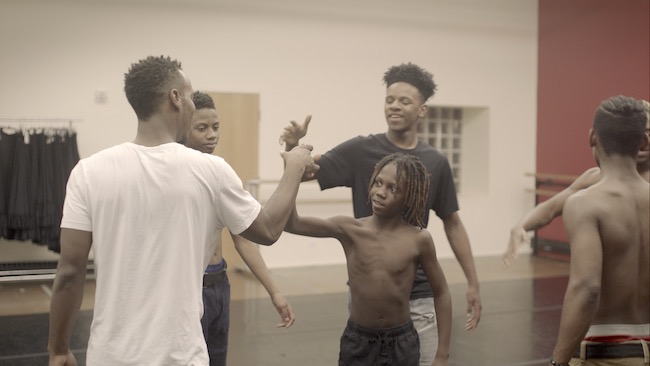
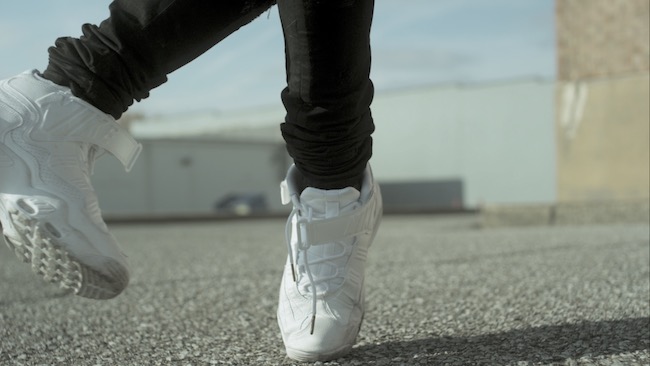
――What were some of the things that you found about yourself that surprised you through this film?
Lil Buck: I’m always surprised at the level of influence I have when I go back home, because I still consider myself such a student and a fan of my peers back in Memphis. The gods of dance to me were Daniel Price and Dr. Rico and these people that I grew up worshipping and idolizing, because they were the best at Memphis jookin. And I’m still such a fan at that level that when I go back, it feels weird in a way that everybody is so influenced by me now. It’s crazy. It’s still surprising to me. I feel like I still haven’t woken up from this dream yet. I’m still pinching myself over it, you know? [laughs]
――Now, you are about to inspire a lot of people in Japan through this film. How do you feel that the movie is going to be released in Japan this summer?
Lil Buck: I am so ecstatic. I’m lost for words. Because first of all, I’m in love with the Japanese culture. Like I said, I grew up a big fan of anime and learning how to speak Japanese just by watching “Cowboy Bebop.”
――Oh, you did?
Lil Buck: I always had a love for Japan and the culture and that whole scene out there. And to see this film coming out in theaters in Japan…I don’t know, it’s kind of overwhelming [laughs.] I wish I could be there right now to see it, but it’s a beautiful feeling. Because, like I said, I’ve been deeply inspired and influenced by the Japanese culture as far as who I am as a person and who I am as an individual. Even when it comes to how I go about certain movements, and my dance style, a lot of it came from Japanese anime and that whole culture of Japan. So it’s like a 360 for me in a weird way. I’m excited about it.
――Have you been to Japan?
Lil Buck: Yeah, I’ve been there many times. My wife is Japanese and she makes fun of me and say, “You’re in Japan more than I am.” Because there was a moment when I was around 22-23 years old, I was being blessed enough to book certain commercials and get paid a lot of money. I would literally spend all of that money that I got on trips to Japan every other month, just to go to Japan.Because I love the fashion, I love the culture, I love the anime, I love the foo, I wanted to really experience Japanese culture for myself.
――I hope you can come back to Japan when it’s safe and teach kids how to dance like you.
Lil Buck: Absolutely. I’m trying to work that out actually because my wife is Japanese and she’s a dancer. We’re trying to do something where we get to go out to studios and teach them together.
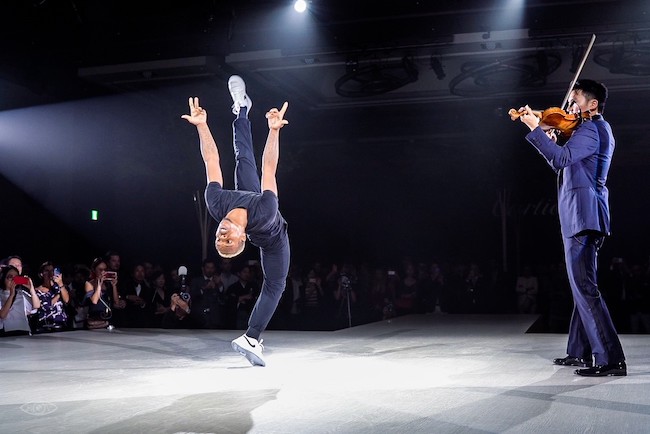
text Nao Machida
text by Nao Machida
「メンフィス・ジューキンは僕らにとって最もポジティブなものの一つで、それはメンフィスの街全体に深く根付いている。僕らはそのことを大切に思っているんだ」 『リル・バック ストリートから世界へ』 リル・バック インタビュー/Interview with Lil Buck about “Lil Buck: Real Swan”
1 2




